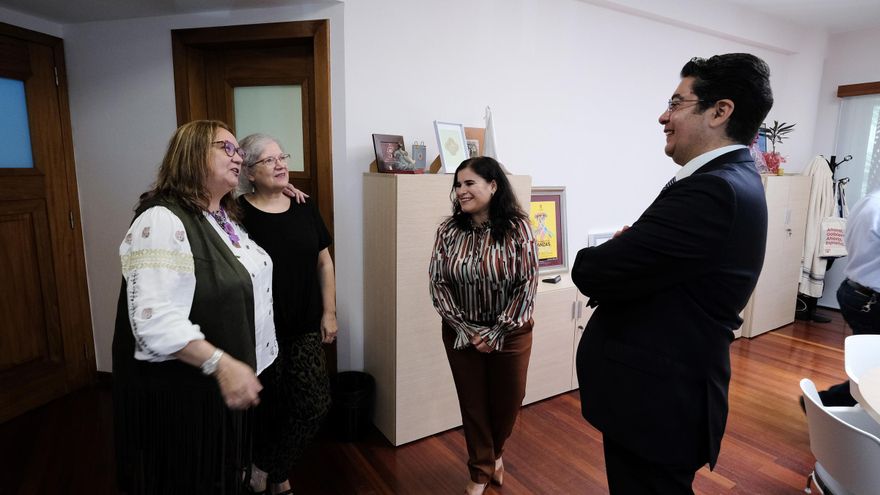
The southeast of the Island will add 140 places for social and health care when the Candelaria City Council and the Cabildo de Tenerife build the center for the elderly in deep ravine. The first phase of the works will begin in a period not exceeding nine monthswith a budget of 4.9 million euros to enable 62 places for dependents, 42 residential and 20 day centers.
The president of the Island Corporation, Peter Martinand the mayoress of Villa Mariana, Mari Brito, signed the agreement that will enable the Consistory to put out to tender the management of works in the coming days. In the following months, it will do the same with the construction project for the new center, as stated in the agreement presented yesterday.
Two phases
The City Council of Candelaria will cede to the Institute of Social and Socio-Health Care (IASS) a plot of 5,074 square meters of urban land, in the Rubén Marichal urbanization, for this building that will have two floors and the necessary services to assume a future expansion. In this context, the agreement contemplates the drafting of the project for a second phase, which will increase the capacity of the socio-sanitary center by 78 spaces, 48 of which are residential and 30 by day.
Pedro Martín explained that this center is the result of the work that the island government “has been doing” to improve care for the elderly on the island. He announced the “launch of various projects” throughout the island as a result of negotiations with the town halls, “as is the case of Candelaria, which has given us the land to carry out the new center, and which represent a significant investment and improvement in the quality of social and health care”.
Pedro Martín puts this project as an example of the result of the work that the insular Government to improve care for the elderly
The mayoress, Mari Brito, stressed “the close collaboration of the City Council with the Cabildo, with which we will continue working to improve the lives of dependent people and their families.” She stressed that the agreement includes “the firm commitment of the IASS to draw up a second phase of the project, with which the number of places can be increased by 48.” The councilor alludes to the fact that she will reinforce assistance and prevent the elderly from having to move to the metropolitan area, which “makes their lives and their families much easier.”
The Minister of Social Action, Marian Franquetemphasized that the collaboration and involvement of the municipalities allows “consolidating a network of socio-health centers that meet the quantitative and qualitative needs of citizen care, through the improvement of the quality of services.”
















